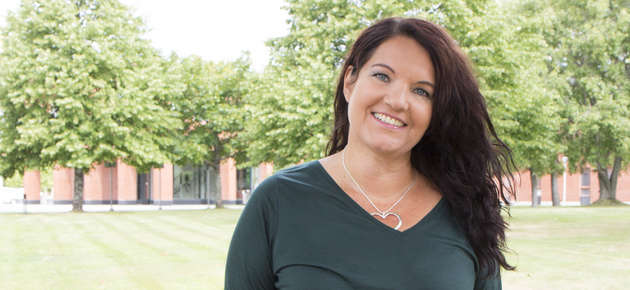Doctoral dissertation: The dieter's curse – merely thinking about the food store could lead ...


"For people battling with their weight, the food store may appear more like a parlour of sweet treats than a place to make healthy purchases. With that in mind, should food stores change their offering so that the environment is more conducive to consumers making healthier food choices?" considers Maijastiina Jokitalo, who will defend her doctoral dissertation at the University of Vaasa.
The changes that have affected the food environment have significantly increased the problem of excessive weight. According to Jokitalo, consumers make naturally easy and pleasurable choices. Often, marketing is targeted specifically at unhealthy products, which are also presented to consumers in an enticing fashion in-store.
"The sweet shelves in stores have expanded, and they are now dozens of metres long, while new fast-food restaurants are constantly springing up on the high street. Package and portion sizes have become abnormally large."
Jokitalo points out that one third of the world's population is obese, and the problem is growing tangibly all the time. New means of helping consumers are urgently needed.
In her doctoral dissertation in the field of marketing, entitled "What makes us fat", Jokitalo examined the roles of consumers' conscious and unconscious attitudes in establishing the meanings of health, as well as the impact on dietary choices of activating these attitudes.
"The concept of healthiness is ambiguous – it may mean one thing to one consumer and something else to another. In my research, people on diets considered products such as light sausage to be healthy. For them, it was sufficient that the packaging bore the word 'light'. Conversely, consumers that were not dieting took a more rigorous approach to health claims related to foods."
A bad mood does not support success
The research showed the dieting consumers had a worse mood and were sadder and more irritable than those who were not dieting.
"The outcome of this research is logical as the state of mind of consumers is known to affect food choices, and being in a bad mood tends to increase the preference for unhealthy foods. It is understandable that dieting could easily be unsuccessful if the consumer is constantly in a negative state of mind."
According to Jokitalo, this can lead to a downward spiral that can be difficult to stop.
"A person who is dieting can almost automatically lapse into eating something forbidden, and this leads to a feeling of guilt, which results in a bad mood. This then leads to more lapses in unhealthy food choices," Jokitalo says.
Pleasure guides dieters in food stores
According to the research, consumers who are dieting found it more pleasant to visit food stores than other people.
"This result also indicates that people on diets naturally associate the impressions of pleasure and deliciousness with food stores. It is clear that consumers eat what is sold to them. Hopefully, responsible food companies and stores will do more to help dieters avoid unhealthy food choices," encourages Jokitalo.
Jokitalo's doctoral dissertation built up an in-depth understanding of the meanings attributed to food and eating by consumers, using two different bodies of research material. The results highlight the importance of marketing that is tailored to specific target groups.
Public defence
The public examination of M.Sc. Maijastiina Jokitalo´s doctoral dissertation ”Mikä meitä lihottaa: Ruoan terveysmerkitysten heijastuminen elintarvikkeiden kuluttajakäyttäytymiseen” will be held on Friday 24 August at 12 o´clock in auditorium Wolff (B201, Tervahovi). The field of dissertation is marketing.
Professor Outi Uusitalo (Jyväskylä University School of Business and Economics) will act as opponent and professor Harri Luomala as custos. The examination will be held in Finnish.
Further information
Maijastiina Jokitalo, tel. +358 29 449 8199, maijastiina.jokitalo(at)uwasa.fi
Jokitalo, Maijastiina (2018): Mikä meitä lihottaa: Ruoan terveysmerkitysten heijastuminen elintarvikkeiden kuluttajakäyttäytymiseen. Acta Wasaensia 407. Väitöskirja. Vaasan yliopisto. University of Vaasa.
Publication pdf: http://urn.fi/URN:ISBN:978-952-476-821-4
Maijastiina Jokitalo was born and grew up in Oulu, FInland. She completed her matriculation examination at Pori Upper Secondary School for Adults in 1996. She earned her Master of Economics degree at the University of Vaasa in 2003, majoring in marketing.
Jokitalo has worked in various educational, marketing, sales and project management positions at the University of Vaasa's Levón Institute for several years. Jokitalo is currently working as Training Manager at the Levón Institute, and she also teaches and trains students and companies in the field of marketing.